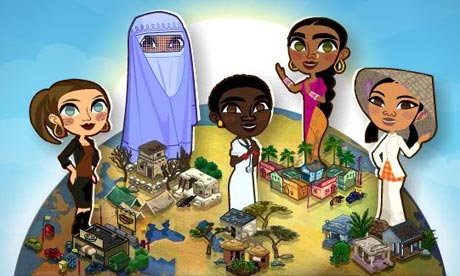If a middle-class housewife in the 1950s wasn’t satisfied with tending to her suburban three-bedroom home, her apple-cheeked offspring and her salary-man husband, people assumed there was something wrong with her. If she wanted anything beyond a good vacuum cleaner and an electric washing machine, she wasn’t closely following “The Good Wife’s Guide,” where the final tip is that “A good wife always knows her place.”
And it wasn’t only men who questioned her femininity and worthiness to society; often her female peers provided little support for a woman with ambitions. Judy Blume, who went on to write some of the most popular and controversial young adult books in history, says that the neighbor ladies on her cul de sac actually laughed at her when she became interested in writing novels.
Then in 1963, Betty Friedan unlocked a dreaded and widespread discontent in her book “The Feminine Mystique,” which proved that women around the country shared “the problem that has no name,” a problem which turned out to be rooted in the sexual roles women had been pigeonholed into.
Friedan and many other pioneers are featured in the PBS program, “Makers: Women Who Make America,” which recaps one of the most influential social revolutions in American history, the women’s movement. The documentary aired on PBS to coincide with the start of Women’s History Month, a worldwide effort in March that highlights the contributions women have made to the world, as well as those still struggling for equality and basic human rights.
While the leaps that women have made to advance their place in history should and will continue to be celebrated, Women’s History Month is also necessary to remind people of the ongoing global challenges that women face.
The more fortunate struggles usually occur in more developed nations. Women still strive to be adequately represented in business, politics, and religious hierarchies. Other battles are more easily forgotten, mainly because the women who face the most extraordinary challenges are usually women who lack any power in the order of things, and therefore lack a voice. These women are often fighting regularly for basic healthcare, physical safety, and the means to raise healthy, educated children.
Even worse, some women don’t even have the opportunity to struggle. In a 1990 essay, Nobel Prize winning economist Amartya Sen estimated that because of gender discrimination in certain parts of the world, more than 100 million females who should otherwise be inhabiting the globe, are missing. In places like Cambodia and India, young women are abducted and sold into sexual slavery by human traffickers, or sometimes their poverty stricken families. Pimps get them addicted to drugs and alcohol, and convince them they have been too shamed to ever lead a normal life. Another way that poor families deal with raising their children is to give baby boys priority over girls, which means the males will get vaccinated and nourished before their sisters do, greatly increasing the female mortality rate.
Women’s History Month establishes a reason for problems like this to be given top billing in the news, at least for the month of March. If people hear about it enough, and if enough people make noise, things may start to change.
As a New York Times columnist, Nicholas Kristof has set the bar for keeping women’s issues in the public conscience. He seems to never stop talking about it, and as a result the problems may be gaining some significant ground. Kristof and his wife Sheryl WuDunn have established a movement called Half The Sky, which involves a book, a documentary, and most recently a video game that takes players through problems that women face around the world. Their movement encourages people to get involved through advocacy and hands-on volunteering, and their website includes more than the usual fund-raising rhetoric; it explains and gives contact information for agencies where people can volunteer around the world for organizations that forward the human rights of women. Maybe by showing people they can do more than write a check towards a problem that seems endless will keep these issues on the table well past March 31.
Even as people fight to prevent current atrocities, new ones are created that the world should be aware of. In a situation that has become disturbingly commonplace, “rape as a weapon of war” has surfaced in the Syrian civil war. While interviewing refugees of the two-year long Syrian war, The International Rescue Committee found that one of the main reasons people are leaving the country is because rape has become “a significant and disturbing feature of the Syrian civil war.”
Not only does rape terrorize and demean women and girls, it also weakens the societal structure. A victim of sexual violence is dishonored, and so if she reports the rape at all, she is shamed and often married off at a far too early age in order to protect her family’s honor.
It seems that today, while some women are celebrating the best that the modern world has to offer, others are suffering some of the worst atrocities in history. With all the strides that women have made in the last century, it sometimes seems like women have arrived at equality. But peering at the world’s women as a whole, instead of separating them by citizenship, reveals much more work to be done.









